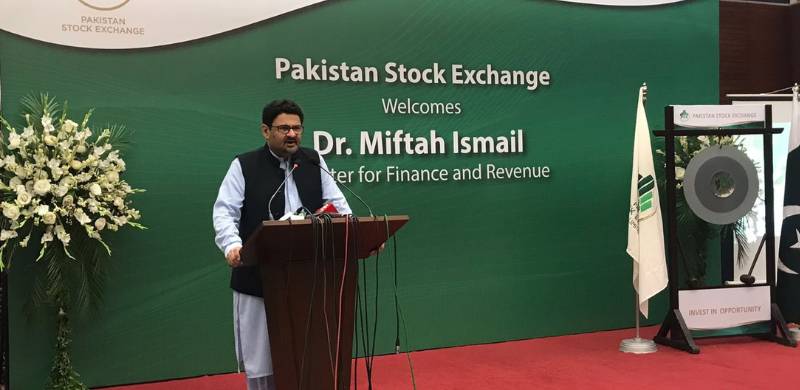
Finance Minister Miftah Ismail has said that the government is planning on limiting imports for the next three months, as the recent import ban helped improve the economy.
Addressing a ceremony at the Pakistan Stock Exchange (PSX) on Friday, he said that the government will control imports even if it leads to a slower growth rate.
"I will not allow imports to increase for three months and, in the meantime, we will come up with a policy. I understand that growth will be reduced for a bit but I have no other choice," he said.
He explained the rupee's steep descent against the greenback on the fact that the dollar outflows had been exceeding inflows, and said that a reduction in imports would help counter that.
"Even a small shopkeeper knows that if your sale is Rs 30,000 a day and you buy stock worth Rs 80,000, then you need to reduce the stock you buy. We did the same. We reduced imports to $4.9 billion from $7 billion and all problems ended."
Miftah said that the objective was not to create unemployment but to reduce imports, noting that the decision would affect automobile and electronic appliance industries the most.
He said that the government had made provisions in advance and had a decent stock of fuel resources. "We are very comfortable in terms of our energy security and energy supply, and other obligations. We will control imports for the next four months."
He commented on how Pakistan, Bangladesh and Vietnam had similar economic circumstances in the nineties, but now Pakistan had to 'ask for money everywhere'.
"It's no fun. I think it's time that we act like a mature, dignified nation. The new tax-to-GDP ratio is 9.2 per cent. You cannot run a country on this. You need more money."
Addressing a ceremony at the Pakistan Stock Exchange (PSX) on Friday, he said that the government will control imports even if it leads to a slower growth rate.
"I will not allow imports to increase for three months and, in the meantime, we will come up with a policy. I understand that growth will be reduced for a bit but I have no other choice," he said.
He explained the rupee's steep descent against the greenback on the fact that the dollar outflows had been exceeding inflows, and said that a reduction in imports would help counter that.
"Even a small shopkeeper knows that if your sale is Rs 30,000 a day and you buy stock worth Rs 80,000, then you need to reduce the stock you buy. We did the same. We reduced imports to $4.9 billion from $7 billion and all problems ended."
Miftah said that the objective was not to create unemployment but to reduce imports, noting that the decision would affect automobile and electronic appliance industries the most.
He said that the government had made provisions in advance and had a decent stock of fuel resources. "We are very comfortable in terms of our energy security and energy supply, and other obligations. We will control imports for the next four months."
He commented on how Pakistan, Bangladesh and Vietnam had similar economic circumstances in the nineties, but now Pakistan had to 'ask for money everywhere'.
"It's no fun. I think it's time that we act like a mature, dignified nation. The new tax-to-GDP ratio is 9.2 per cent. You cannot run a country on this. You need more money."

